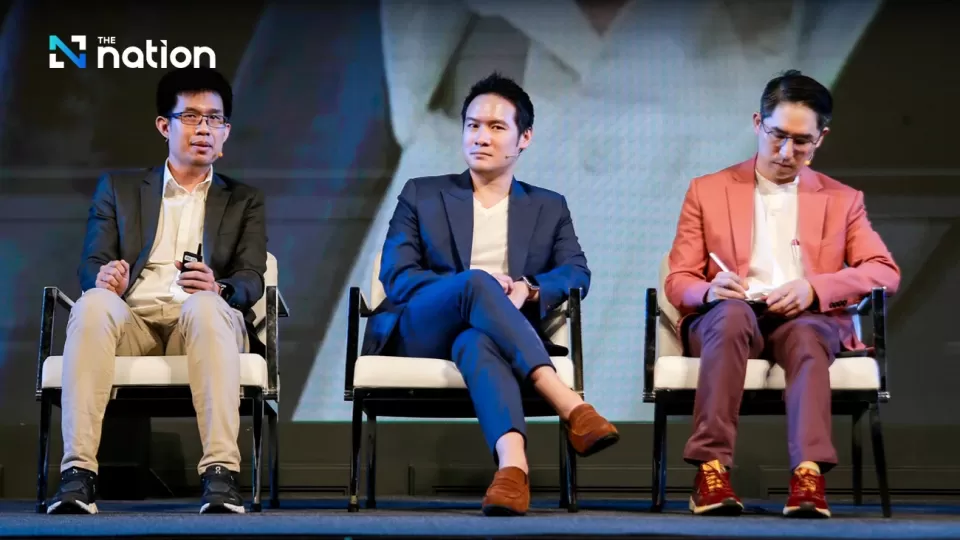April 3, 2024
BANGKOK – Speaking at a seminar titled “AI Revolution 2024: Transforming Thailand’s Economy”, AI leaders pointed out that soft-power giants like South Korea are at the forefront of AI adoption, particularly in the entertainment sector.
The Thai government is currently trying to replicate the global success of Korean cultural exports with a soft-power drive focused on the “five Fs” – festivals, food, fight, film and fashion.
Worawisut Pinyoyang, co-founder of ImpactMind AI and Insiderly AI, kicked off the May 22 seminar in Bangkok by asking why K-pop is so successful around the world.
The answer boils down to technology, which drives almost all South Korean soft power.
“Do you know that South Korea ranks fourth in the world in AI adoption?” he added to underscore his point.
Thailand’s AI ambition
Although Thailand aims to become Southeast Asia’s AI hub under its national AI Strategy and Action Plan (2022-2027), it still lags far behind South Korea in terms of infrastructure.
Seoul has invested in hyper-scale AI infrastructure, making Amazon AI cloud services a foundation of the country’s economy and development.
It did so in order to integrate AI into film, broadcasting, music, digital gaming and even webtoon production, the seminar heard. AI is now embedded in the heart of South Korea’s creative industries, generating everything from storyboards to plots and storylines.
It also helps power the popularity of K-pop music videos, calculating the time of release and performer appearances in each zone to maximise their global reach and popularity.
It even predicts whether a song poised for release will be popular or not, based on data collected from past releases.
With AI guaranteeing precision, predictability and consistency of the finished product, South Korea’s entertainment industry is freed to focus solely on creativity.
Worawisut also drew attention to how AI has revolutionised our daily entertainment choices without many of us even realising it. One example is choosing shows to watch on Netflix. Worawisut revealed that AI generates around 80,000 thumbnails from each episode to match your interests, including your favourite actors you most-watched shows. These AI recommendations then pop up to grab your attention while searching Netflix and other platforms.
AI shaping Thai workforce, creative industry
Generative AI – programs like ChatGTP that can generate text, images and videos on demand – is spreading fast through the medical, finance, accounting, education, management, and creative industries.
Concern is therefore growing in Thailand that millions could lose their jobs to AI.
“Thailand is known for its people’s creativity, proven by the many viral creative commercials we produce. But can AI be creative? Will it replace human creativity?” Worawisut asked.
Touchapon Kraisingkorn, group chief technology officer at Amity Solutions, was optimistic that AI will become a tool rather than a threat to human workers.
“AI does indeed generate additional productivity, but the labour market still needs more people every year,” he said.
Challenges for people
Worawisut agreed, emphasising that there was no need to be afraid of AI if you are a flexible person since it will only replace routine work and take over all the boring jobs.
People would be elevated to do occupations that require more skill and creativity. Unlearning and reskilling would be required in the future, he said, citing studies that suggest 49% of occupational skill sets will be made obsolete by AI.
Touchapon noted that the next generation of AI – termed AGI or artificial general intelligence – is expected to intensify disruption in many industries over the next 10 to 15 years.
Meanwhile, Thais are very engaged in implementing AI in their daily lives. But local technology firms still require support and time to develop effective AI tools, he added.
“We can safely say that incredible AI tools only come with excellent input.”
Touchapon pinpointed two big challenges for the domestic AI industry: the relatively small size of the Thai market and the local preference for international brands.
On AI adoption, Thailand stands somewhere in the middle among Asian countries.
Leading the way in Southeast Asia is Singapore, which Worawisut praised for making AI a national agenda and teaching it from the primary school level. In contrast, Thailand offers only two AI courses at university level. This shows that we still need to create more awareness of AI among the population, he said.
Protests and deepfakes
The seminar also addressed the lack of regulations governing AI, with Worawisut citing a prominent example of social conflict arising from this regulatory vacuum.
“The entertainment industry was shaken last year when Hollywood protested against AI, which was threatening to affect everyone – scriptwriters, actors and actresses.”
This is because generative AI is now being used to write scripts and use actors’ images to create deepfakes.
The latter have also raised concern over a new wave of fake news generated by digital impostors.
“Just a snapshot of yourself can be generated into a video of you speaking whatever the script is, in whatever language, and in whatever setting,” Worawisut said.
“How cool – and scary – is that?”


